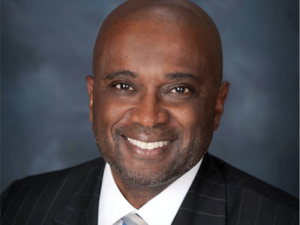Presumptive Democratic presidential nominee Hillary Clinton rolled out her plans for technology policy on Tuesday. She hit some of the biggest issues in the industry, including Internet access, patent reform and more government support for tech entrepreneurs.
“Given the critical importance of our sector, it's encouraging that Secretary Clinton is taking the initiative as the first major presidential candidate in this election cycle to put technology and innovation issues front-and-center in the national policy debate," Consumer Technology Association president Gary Shapiro said in an emailed statement. "Technology and innovation are major drivers of the U.S. economy and provide hope for the future by creating jobs, leading our nation’s competitiveness and providing solutions to global challenges."
Clinton hasn't ignored tech policy before, but she hadn't laid out her plans on paper so formally either. Cybersecurity, international trade and infrastructure support have all come up during the primary and will come up again and again before November, which makes staking out positions explicitly now is useful for Clinton as she makes the case for her election to the U.S.
"We are encouraged to see that Secretary Clinton understands the value of the internet to the U.S. economy - both domestically and as an export," Internet Association spokesman Noah Theran told DC Inno. "The internet sector is one of the fastest growing sectors of the economy, employs nearly 3 million Americans, and represents 6 percent of GDP."
Clinton's stated goals for her administration include training 50,000 new computer science teachers in the next ten years to get every student in the country a computer science education. That ties into her goal of bringing high-speed Internet to every household by 2020 as well as connecting many public areas with free Wi-Fi and expanding 5G wireless access. She also described the outline of a plan for special federal loan status for tech startup entrepreneurs to defer student loans without interest or other payment for up to three years while they work on the business.
Though the policy plans aren't in any kind of final form, there are enough details to at least sketch out Clinton's vision for tech policy. So far, presumptive Republican presidential nominee Donald Trump has not put together a similar package, but the industry is eager to take part in helping shape the tech policy agenda for both parties.
"We look forward to working with all candidates to support the internet through sound policy and all the economic benefits that come along with it," Theran said."
“We encourage the other presidential candidates to soon follow suit and lay out their agendas to support innovation and the U.S. tech economy," Shapiro said.




